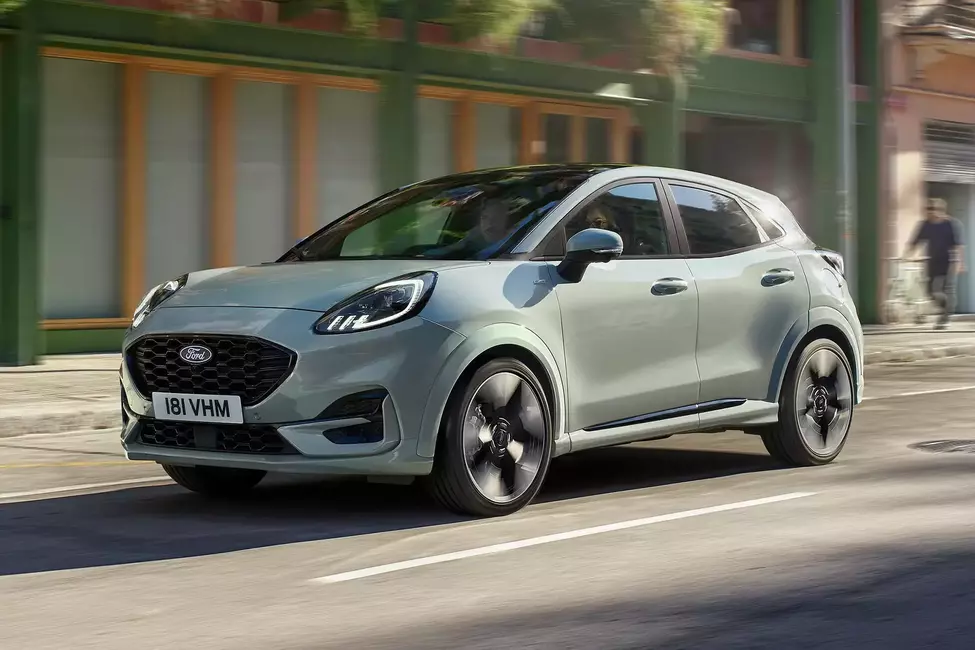What is Lease Purchase?

What is Lease Purchase?
Low monthly payments and one large final payment. Here’s everything you need to know about Lease Purchase car finance.
If you’re after a used car and want low, low monthly payments, then Lease Purchase (LP) could be for you – it’s one of the most affordable ways to take out car finance.
After a period of monthly payments, you pay a final lump sum and own the car. Unlike Personal Contract Purchase (PCP), where the final payment is optional and you can hand the car back or trade it in if you don’t want to keep it, the final payment on LP is mandatory so you’ll need to plan for it.
An LP finance deal is usually a cheaper way to finance a car than Hire Purchase (HP), and it’s more flexible than PCP because there’s lots of adjustment in the monthly instalment amount and the final payment.
How does Lease Purchase work?
The process of a Lease Purchase contract is simple. You choose the used car you want, and pay a deposit – usually around 10 percent, but it can be up to 50%. The higher the deposit, the lower your monthly payments.
Those payments are generally spread monthly over two to four years. The amounts tend to be lower than other types of finance – such as HP or a bank loan – because they only cover part of the cost of the car, rather than all of it. The payments could also be slightly lower than an equivalent PCP deal, because interest rates tend to be lower, reflecting the reduced risk of vehicle depreciation loss to the lender.
At the end of the contract there’s a final payment, also known as a balloon payment. This will be a substantial part of the cost of the car – usually several thousand pounds. Unlike a PCP deal where this is optional, it’s mandatory on LP and must be paid. You can pay it in one lump sum, or there’s usually the chance to extend the lease agreement through more monthly payments, or refinancing.
Lease Purchase could be for you if you want low monthly payments and want to own the car at the end, but the large final payment is something you’ll need to plan for. If you want to change your vehicle often then it might not be the best option, as you’re committed to buying the car.
How is Lease Purchase different from PCP?
The difference between LP and PCP is what happens at the end of the contract. Simply put, PCP lets you decide whether you want to pay to own the car, but with LP the final payment is mandatory. You can’t hand the car back, although you can usually extend the arrangement or refinance the car.
Monthly payments on LP could also be slightly cheaper than PCP, because interest rates are often lower. This is because PCP lenders have to take into account the risk that cars could depreciate more than expected when they’re returned – not something they have to worry about with LP.
How is Lease Purchase different from Hire Purchase (HP)?
The main difference between LP and HP is that Hire Purchase sees you pay a deposit and monthly payments, covering the whole cost of the car (and interest). There’s no final payment with HP, but the monthly payments are typically larger.
How is Lease Purchase different from leasing?
Leasing, sometimes known as Personal Contract Hire, is long-term renting of a car with no option to buy it at the end. While you pay a sum up front and then monthly payments – like LP – you then hand the car back at the end of the agreement.
How to take out a Lease Purchase agreement
How much you’ll pay each month on an LP deal will be based on how much you put down as a deposit, an estimation of the car’s worth at the end of the deal, and the interest rate set by the lender. Interest is payable on the entire balance, including the final payment.
You’ll need to agree an annual mileage estimation with the lender, and how long you want the agreement to last. Then the finance company will estimate what the car is worth at the end of the deal, and that’ll form the value of the final payment. In effect, your deposit and monthly payments cover the depreciation of the car’s value over the length of the contract, rather than the whole value of the car at the time of the deal.
However, because you’ll commit to buying the vehicle at the end of the deal, many lenders will be happy to raise or lower the final payment, giving you extra financial flexibility.
Once the deal is up and running, it’s important to remember that you don’t own the car until the whole balance is paid off. If you want to modify it – for example, fitting a towbar or changing the wheels – you’ll need permission from the finance company.
At the end of the deal, you have to make the final payment, which is usually several thousand pounds. The vehicle is now yours. The mileage limit or actual worth of the car doesn’t matter – you’ve agreed to the final payment as set out in the contract. If you don’t have the cash available to pay this in one go, you can usually refinance the car to continue paying the outstanding amount monthly, or you may be able to extend the lease purchase agreement.
Ending a Lease Purchase agreement early
If you want to end your LP deal early, ask your finance company for a settlement fee. Note, however, that this will likely include penalty charges to cover a portion of the interest that you would have paid if the contract was completed.
Once you’ve received a settlement fee and received permission from the lender, you should be able to sell the car to cover the settlement fee. If the amount you get from selling the car isn’t enough to cover the settlement fee, you’ll need to make up the difference yourself.
Should you miss a payment on your Lease Purchase deal, the lender can seize the car and sell it to cover the money owing. Again, if that sale doesn’t cover your debt you’ll have to pay the difference. This could include court costs, too.
Another option to end the agreement early is Voluntary Termination. Under law you can return your car with nothing else to pay if you’ve already paid half of the total amount owing, including the final payment and interest. You can pay a lump sum to make up that amount if you’ve yet to reach the halfway point. However, while Voluntary Termination means you won’t need to keep paying, it also leaves you with nothing for the money you’ve spent so far.
Browse our most popular models

24/09/2024
Best Car Deals for New and Used Cars
Whether you're looking for the best PCP deal, huge savings with a great car leasing deal or car finance discounts, we’ve searched to find the best car deals for you.
Best 0% APR Car Finance Deals
If you're looking for a 0% car finance deal on a new car, you've come to the right place. We've searched to find the best 0 interest finance car deals out there to help you save money.
Best PCP Car Deals
Personal Contract Purchase (also known as PCP) could allow you to get your hands on a new car without needing to stump up a significant sum of cash all at once. And to help you out, we've rounded up all the best PCP car deals on offer in the UK today.
Promotions
Trustpilot Reviews
Get our latest advice, news and offers
Keep me updated by email with the latest advice, news and offers from heycar.
By submitting you agree to our privacy policy














